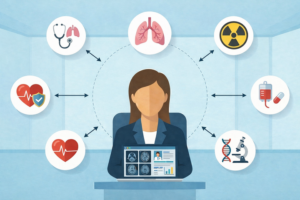
Just over two months ago, Australia’s much anticipated provisions governing social media platform access by under-16s came into force. While it’s still early, let’s examine how various stakeholders have responded.…
By Bronwyn Howell | January 30, 2026

In a media ecosystem no longer defined by scarcity, Carr’s revival of the Equal Time Rule may say less about ensuring democratic fairness than about how long a broadcast-era solution…
By Daniel Lyons | January 28, 2026

Following the US Supreme Court’s 2024 rulings in the jawboning cases of Murthy v. Missouri and National Rifle Association of America v. Vullo, it was a matter of when—not if—another…
By Clay Calvert | January 27, 2026

People would have a due process right to contest seizures of their data when government agents do not use a warrant. Whether people get such rights ultimately depends on whether…
By Jim Harper | January 27, 2026

Shane Tews interviews Greg Oslan, where they discuss why established cybersecurity measures failed to halt or slow down the activity of cybercriminals, what can we do to better protect ourselves…
By Shane Tews | January 26, 2026

At Davos this week, Demis Hassabis, the CEO of Google DeepMind, gave a standout talk about the path he believes AI will take in the coming years. While he thinks…
By Will Rinehart | January 23, 2026

“This is a case about minor Plaintiffs’ alleged addiction to Defendants’ social media platforms and the alleged adverse effects flowing from that addiction.” That’s how California Superior Court Judge Carolyn…
By Clay Calvert | January 22, 2026

A federal court recently blocked Colorado from enforcing part of a new law that compels social media platforms “to provide non-commercial disclosures to minors about the alleged health impacts of…
By Clay Calvert | January 21, 2026

The most profound way I used AI in 2025 came during one of the harder stretches my family has faced: My mother’s cancer came back. In the past, navigating this…
By John Bailey | January 20, 2026

A year ago, I shared some reflections on how I was using AI and suggested that it’s helpful to think of these tools as competent interns working remotely: earnest and…
By John Bailey | January 20, 2026

For many years, the Consumer Electronics Show (CES) displayed the potential for smart technology to transform our daily lives. At CES 2026, the reality of smart devices came to life…
By Shane Tews | January 16, 2026

Over the last year, the Abundance movement has gained traction in American political discourse. Driven by Ezra Klein and Derek Thompson’s book of the same name, Abundance challenges the progressive…
By Daniel Lyons | January 16, 2026

If we’re going to fix electricity pricing problems, we need to understand what’s actually causing them. Blaming data centers for rising electricity bills is easier than reforming how we allocate…
By Will Rinehart | January 15, 2026

In today’s digital economy, mobile apps are everywhere—and so are the entrepreneurs trying to build them. Over 3.8 million apps are available in Apple’s App Store, with new ones entering…
By Mark Jamison | January 15, 2026

Key Points Read the PDF (text version below): Editor’s Note In 1986, the American Enterprise Institute published The Politics of Industrial Policy, a collection of essays edited by AEI Senior Fellow…
By Jeffrey A. Hart | January 14, 2026